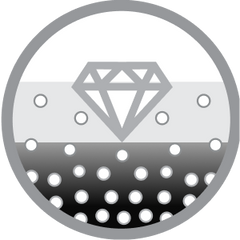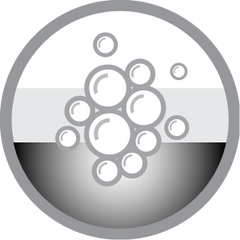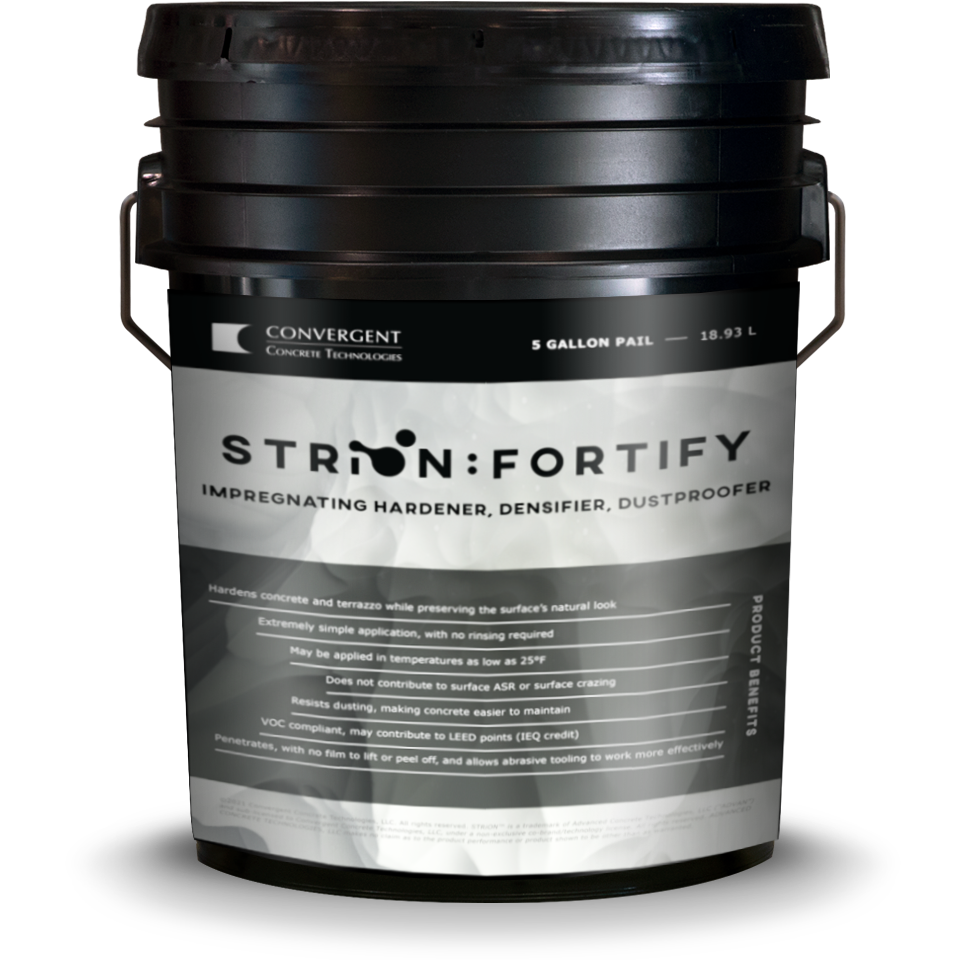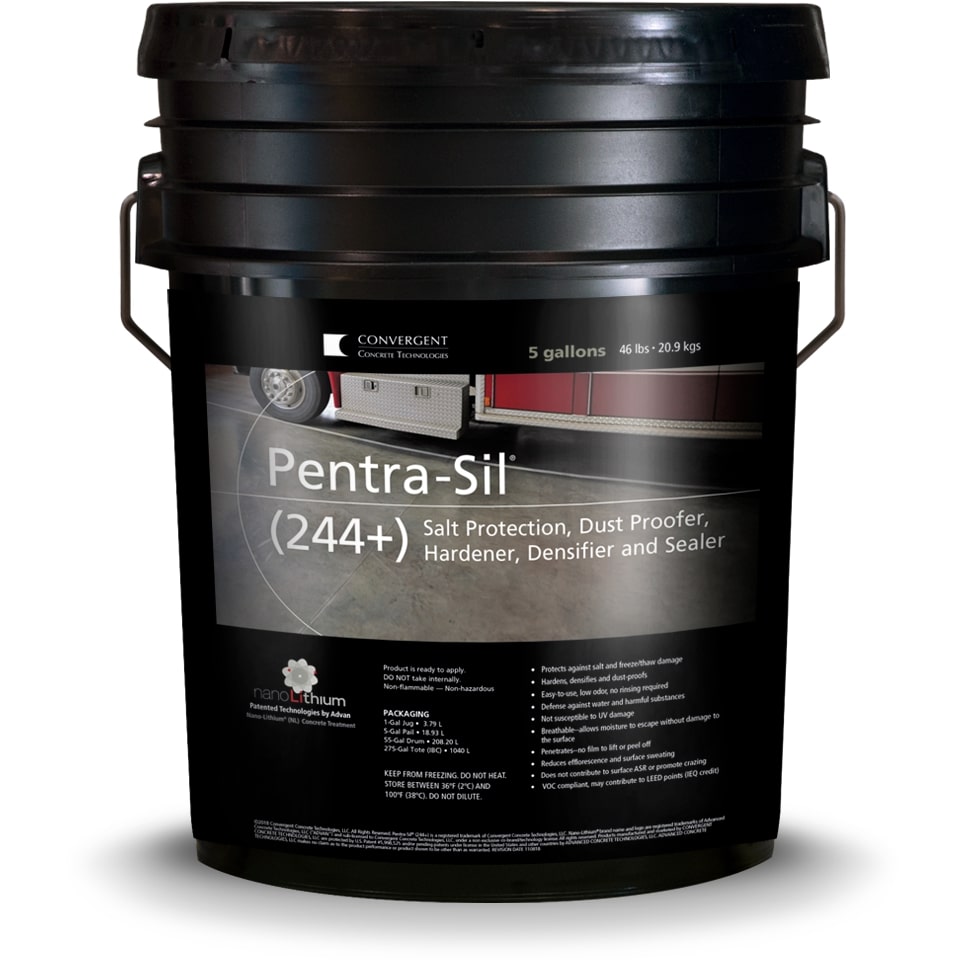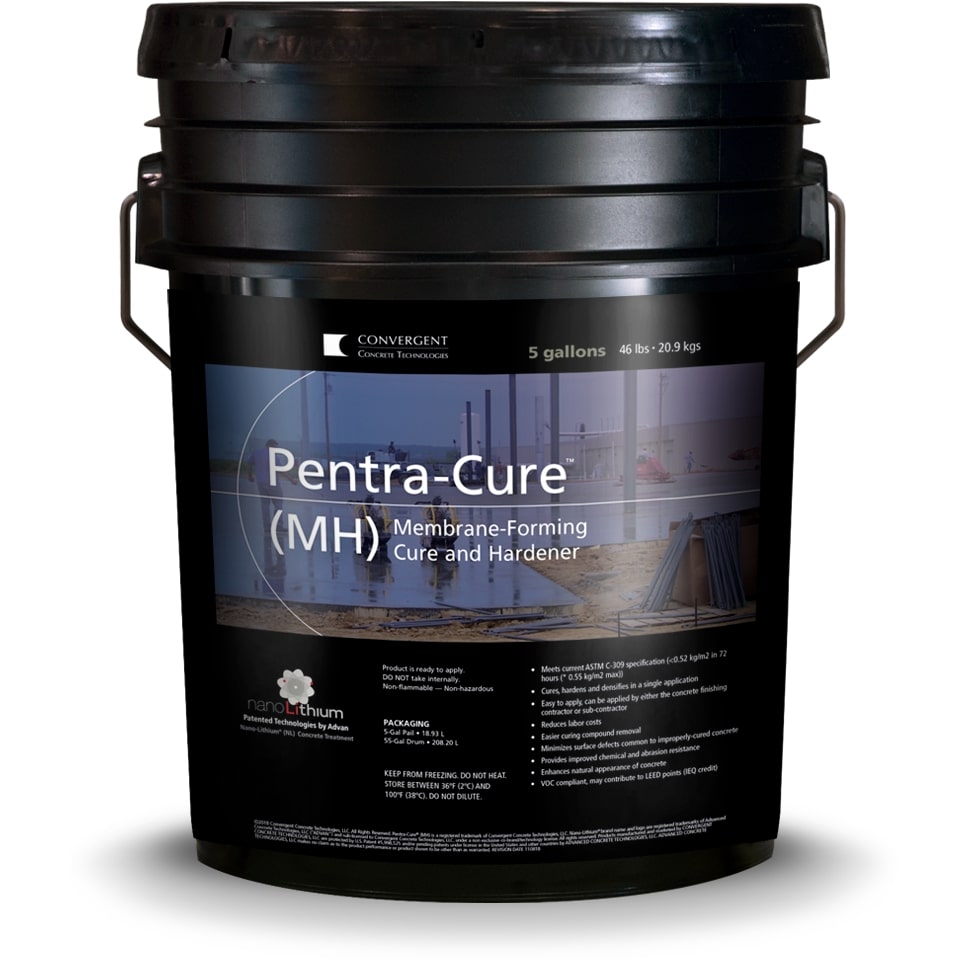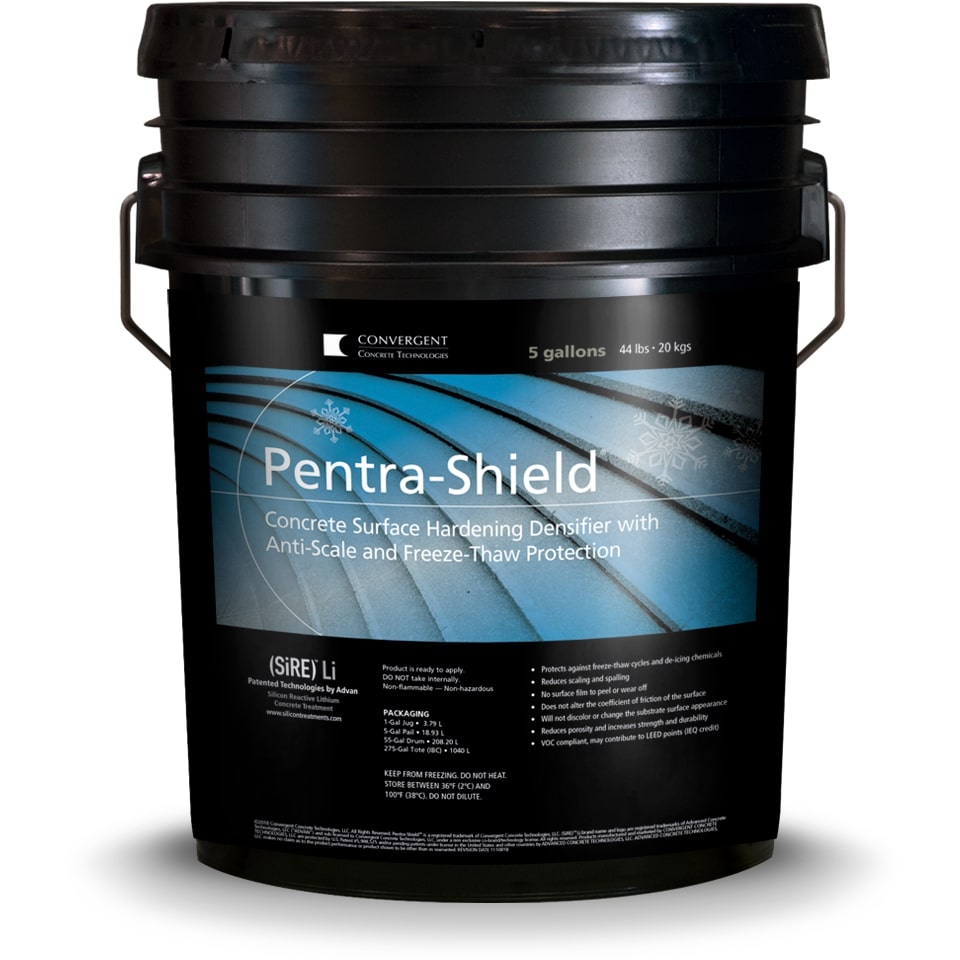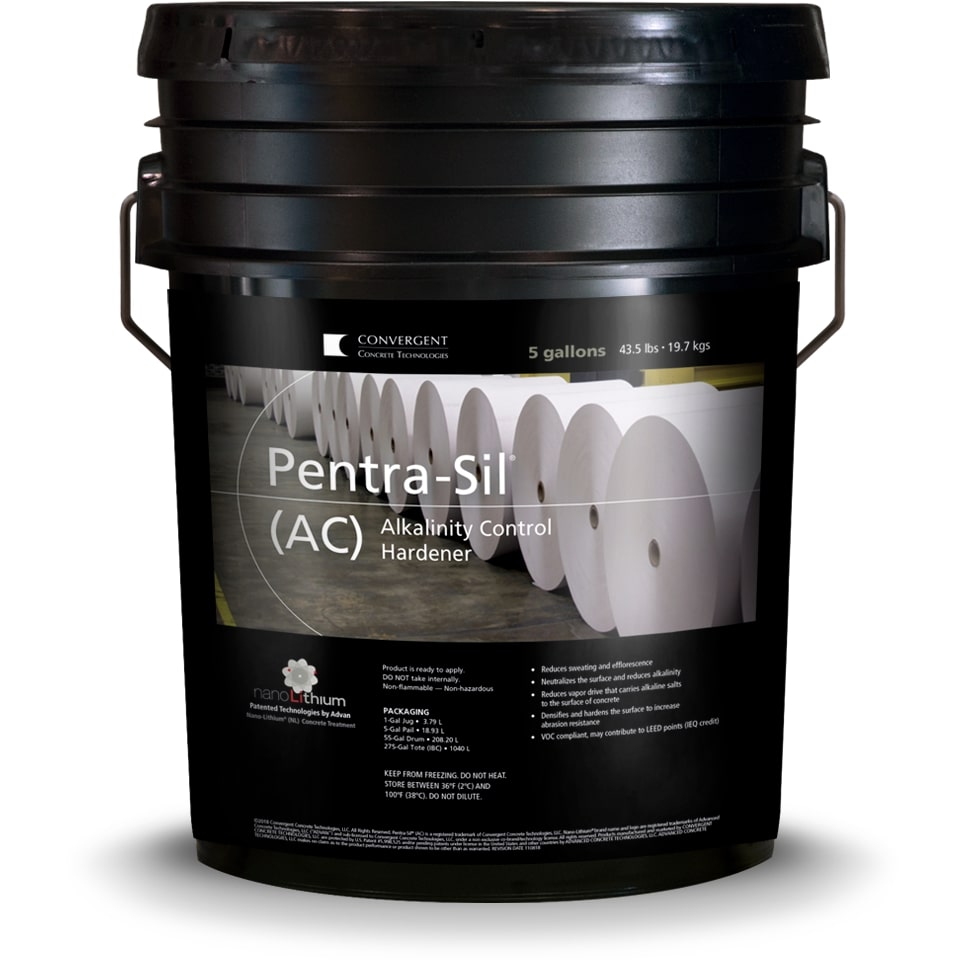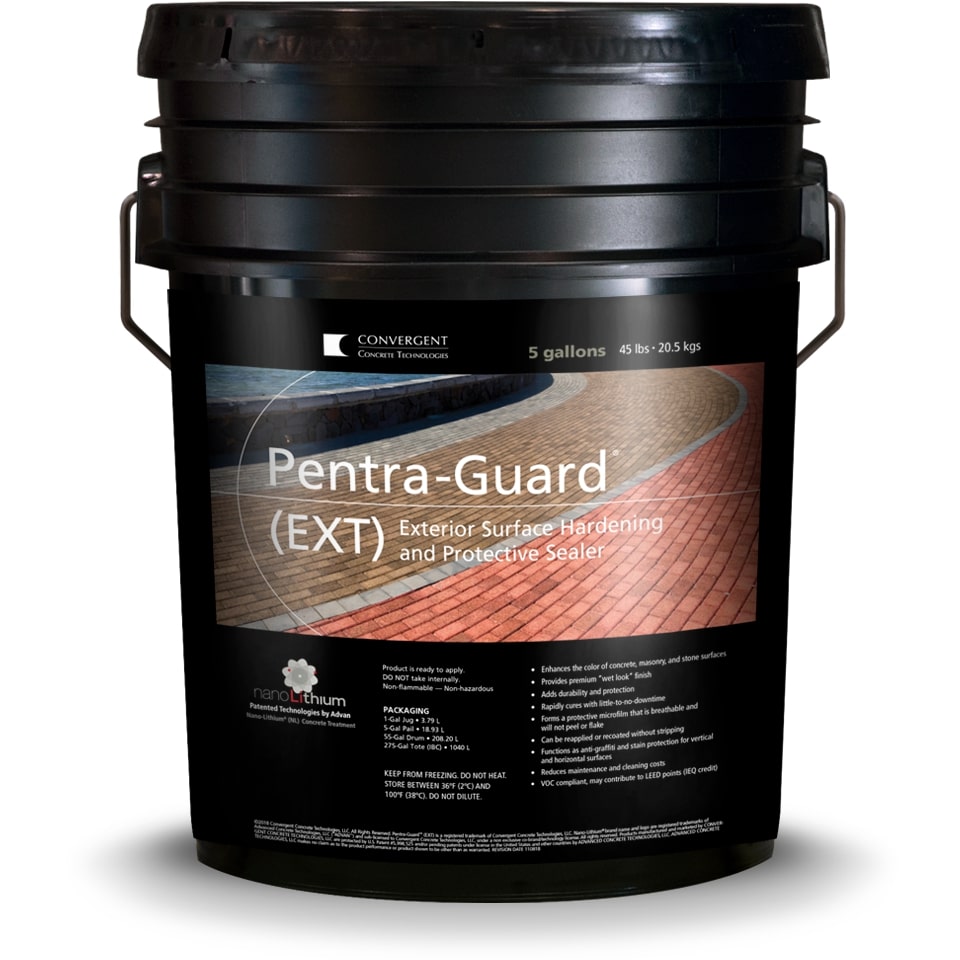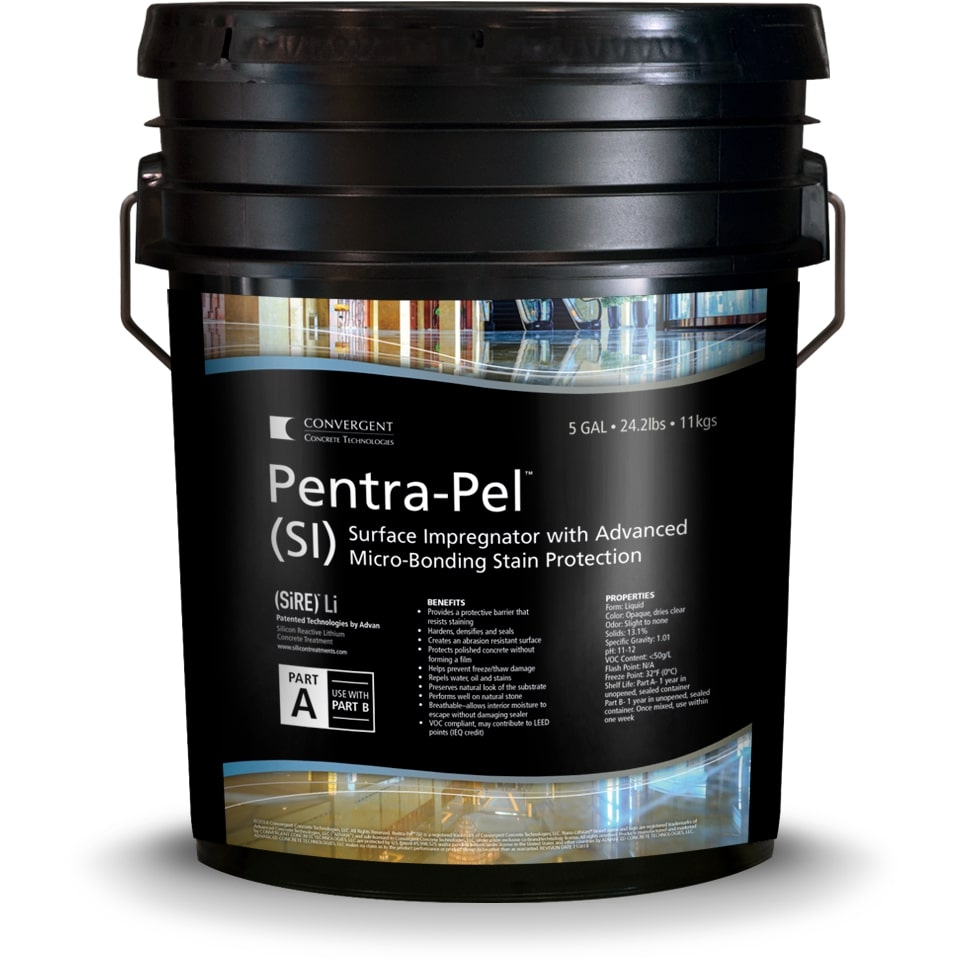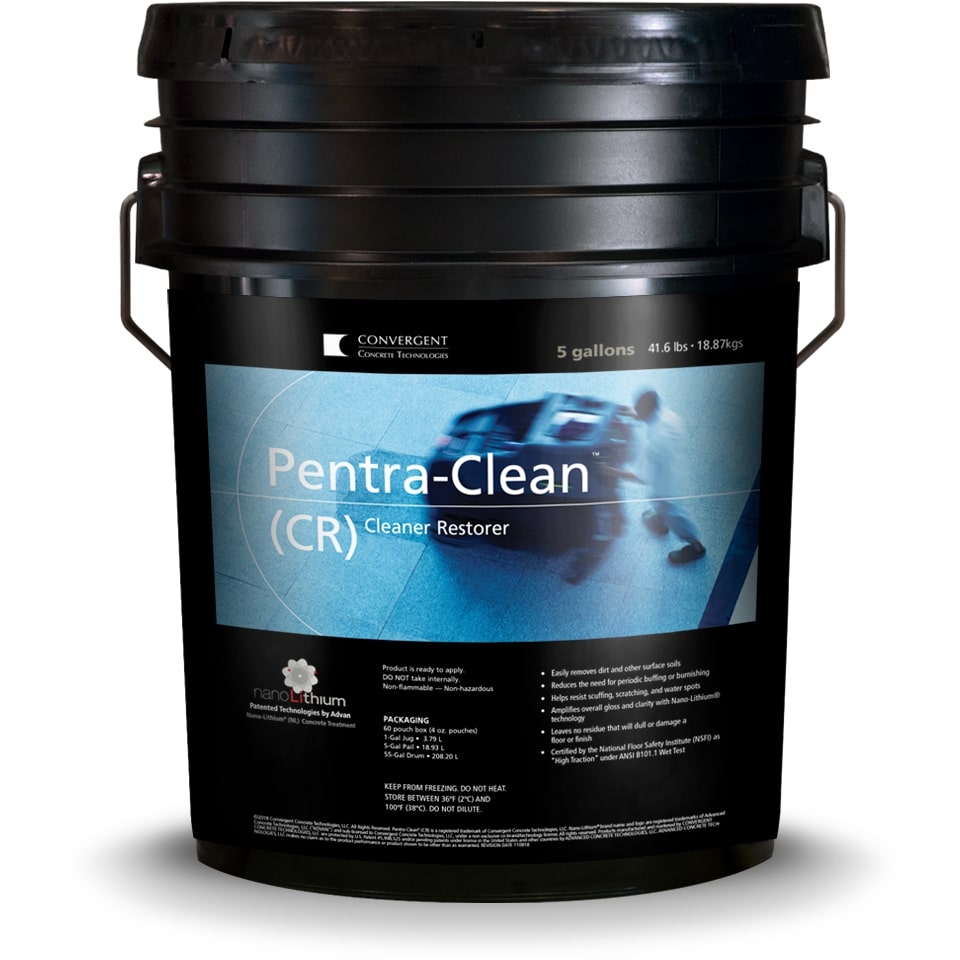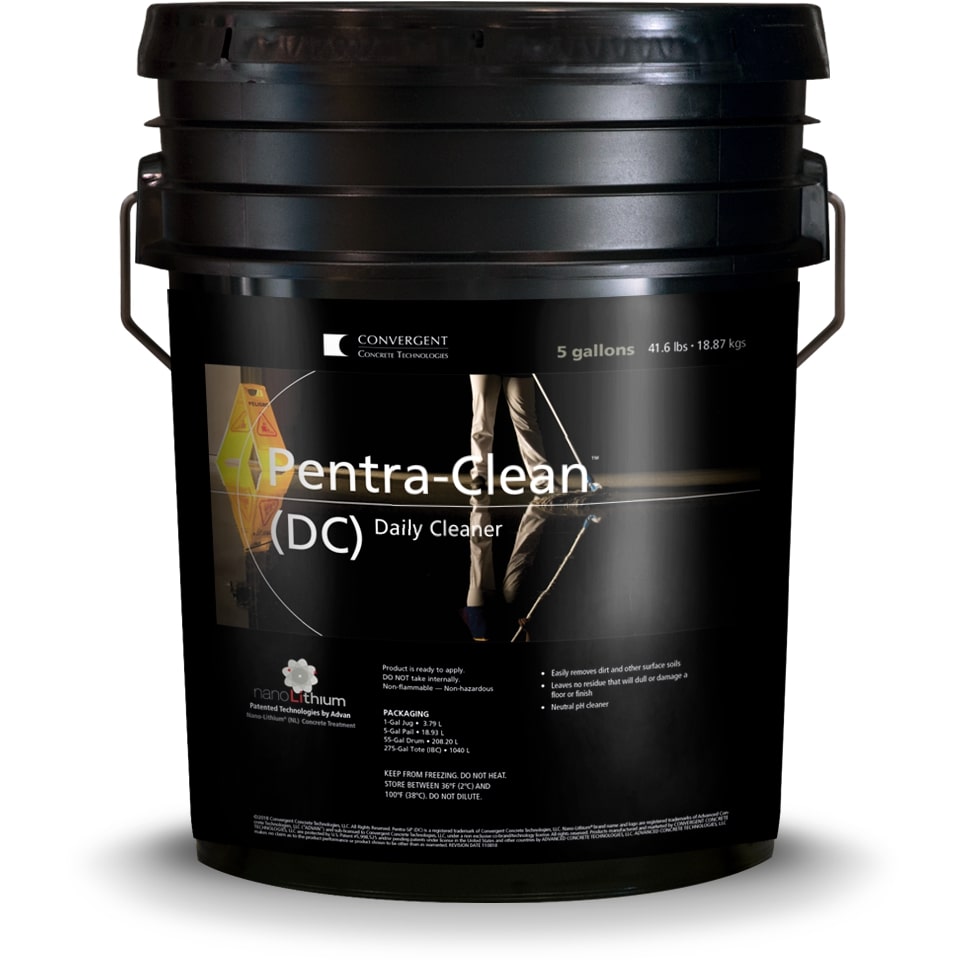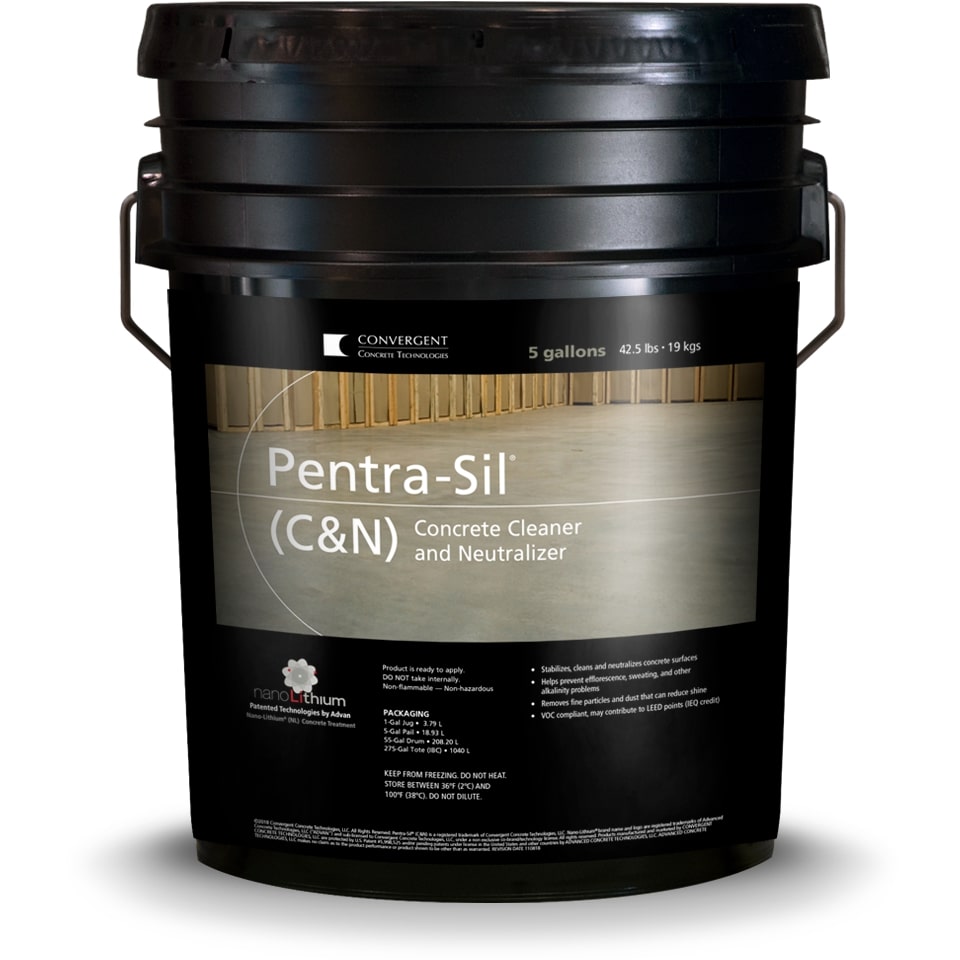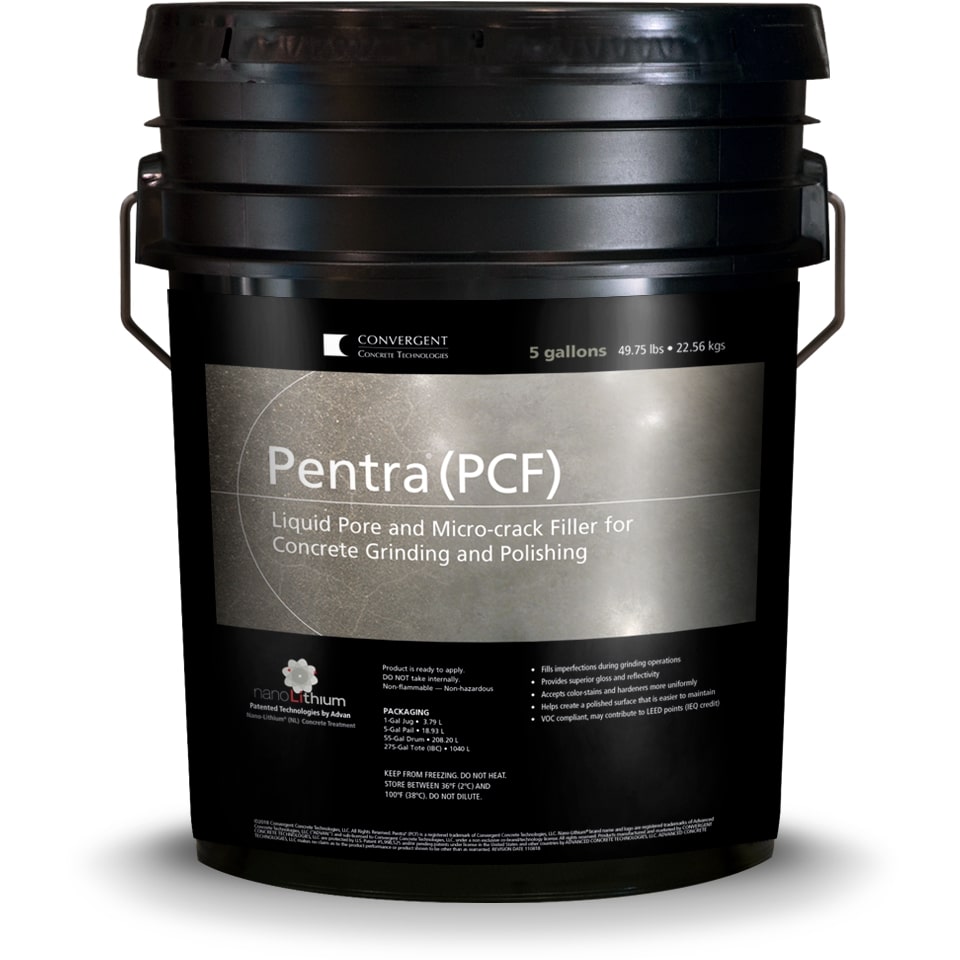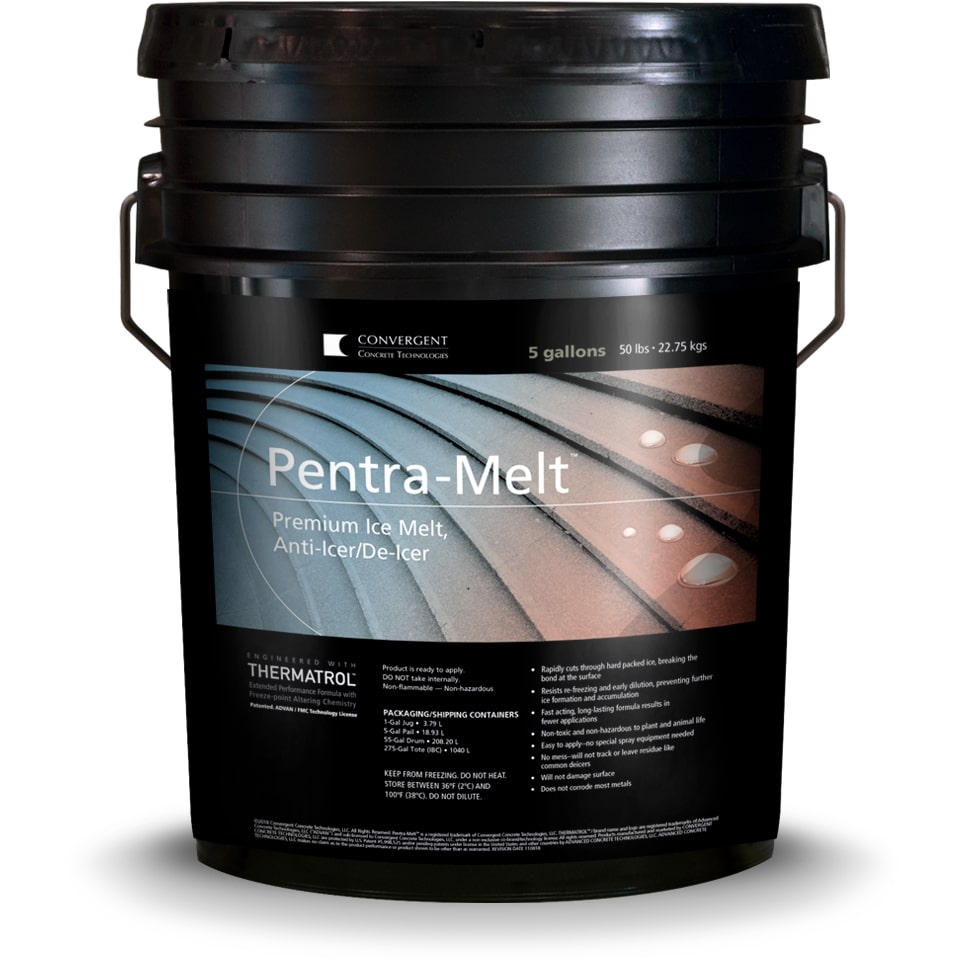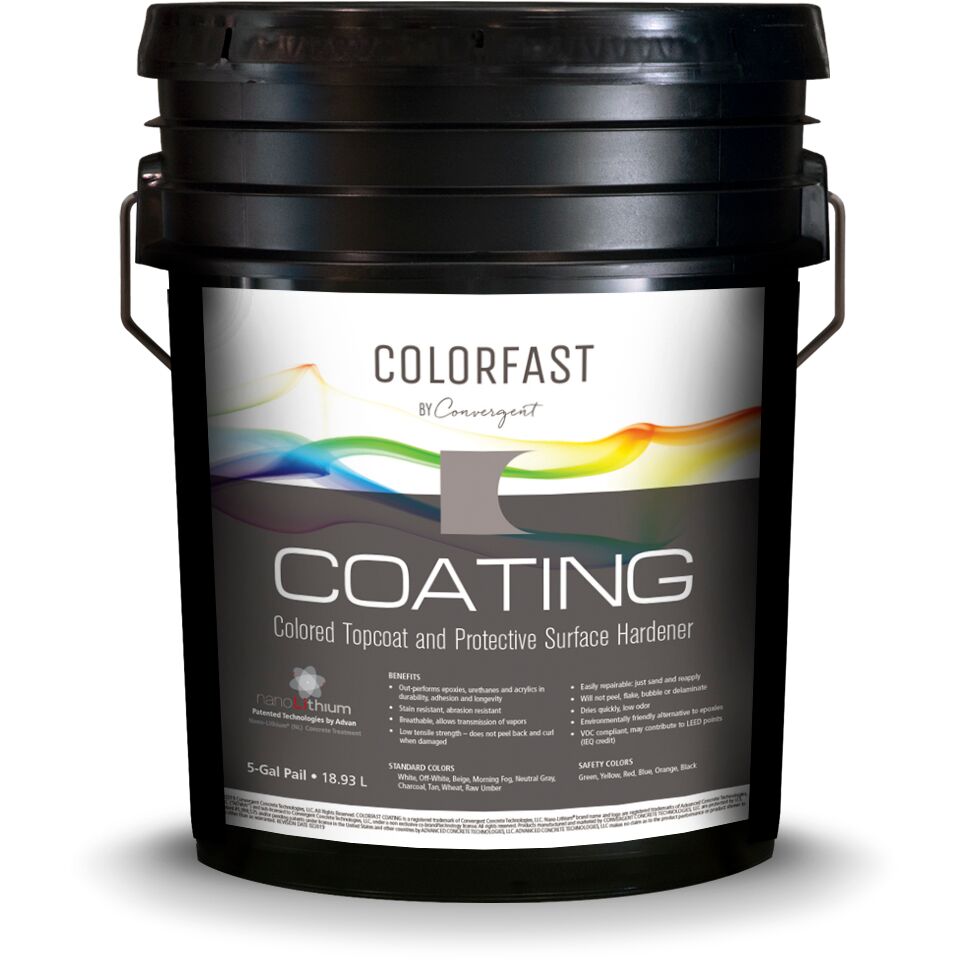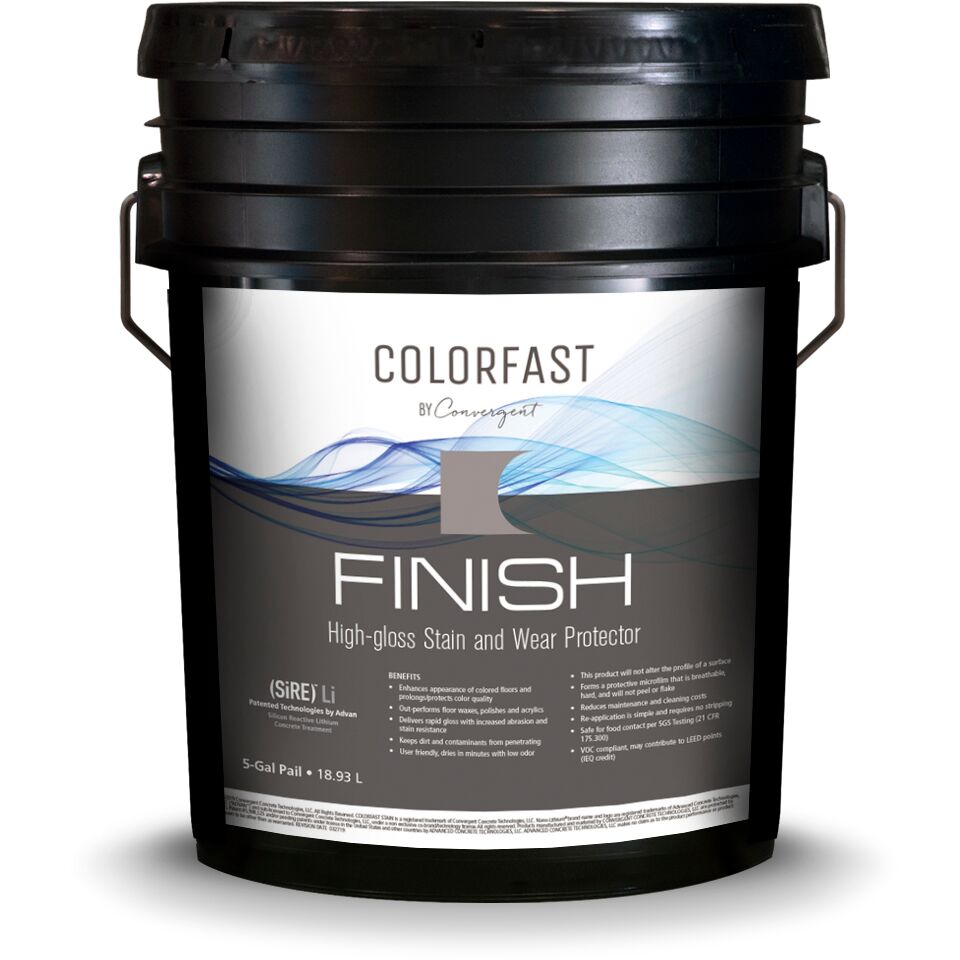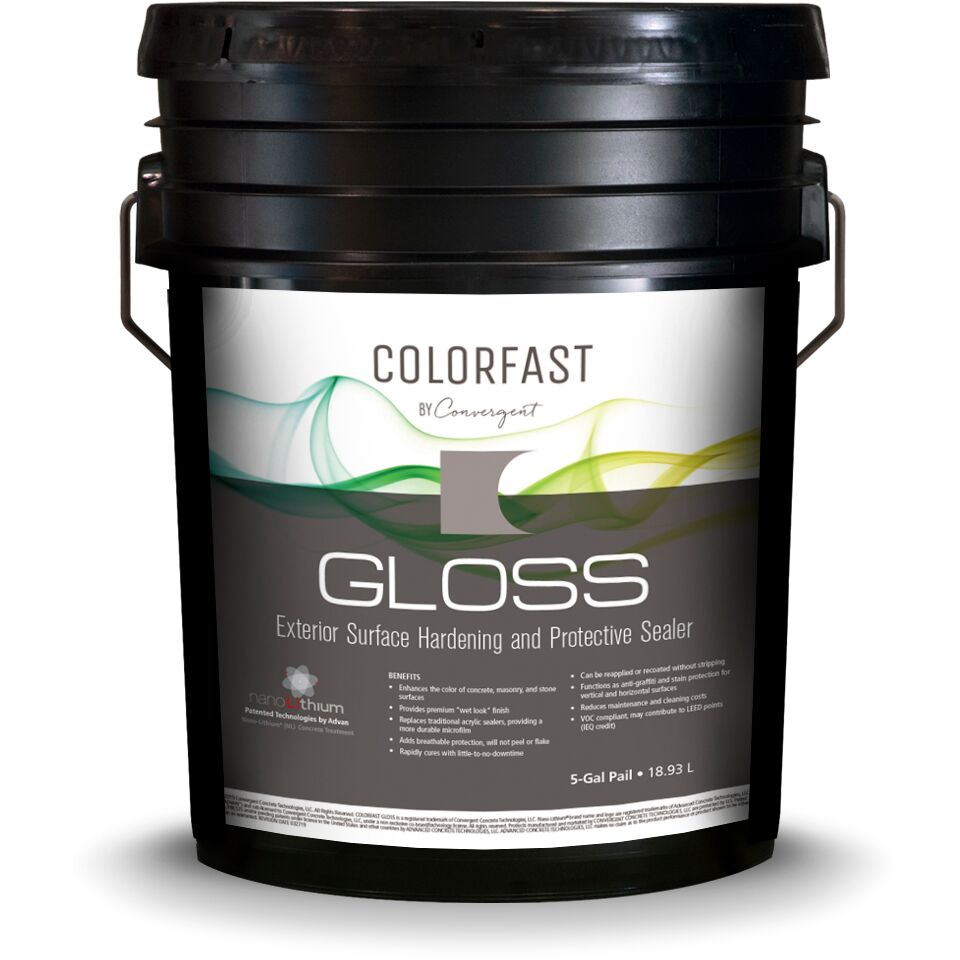Lithium densifiers FAQ’S: Part 2

Densification means hardening your floors from the inside out. It is not a topical or film-forming layer that simply seals the surface of your concrete floor–but rather the spraying of liquid silicate densifiers to create a chemical reaction. This chemical reaction produces a by-product (Calcium silicate hydrate or CSH) that then permeates through the top few layers of your concrete surface filling pores and irregularities and increasing the surface density of your concrete. This makes your concrete so much stronger and more durable.
A low-pressure hand sprayer will easily apply your lithium densifier to your concrete surface. Make sure to evenly distribute the densifier across the surface area and to saturate the entire surface. Try not to let the product ‘pool’ and let it sit wet on the surface for at least 20 minutes.
The forms that secure the concrete in place while it is drying should not be removed for at least 2 days. Make sure the concrete is completely dry before removing the forms. The weather may also play a role in the concrete drying time.
A lithium concrete densifier will help reduce white powder as three variables must be present whenever white powder or Efflorescence appears:
- Soluble salt. A variety of salts can be present in masonry or an alkali such as calcium hydroxide (lime) could form salt when exposed to air.
- Water. Moisture will carry the salt to the surface.
- Channels. The microscopic pores in the concrete act as ‘channels’ that allow water to move within it.
Foot traffic, car tires and even cleaning of concrete can cause disintegration of the top layer of weakened concrete and cause concrete dust. Densifying your floor with a lithium densifier will dustproof the surface by strengthening the surface of the floor.
It is always a good idea to seal your concrete after grinding. When you seal your concrete you are insuring it against spills, damage, and wear-and-tear. Sealing strengthens your concrete and makes it less porous and thus easier to clean and maintain. Concrete sealing is much less labor-intensive than having to replace a concrete floor and gives it a ‘finished look’ that can either be matte or glossy depending on which sealant you are using.
Almost any structurally sound concrete floor can be polished. It does not matter if it is new or old– although new floors should be adequately cured before polishing or applying a sealer.



